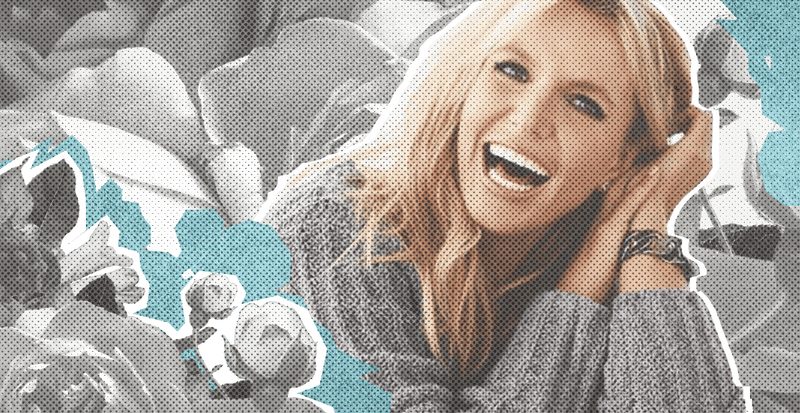It’s been ten years since Britney Spears experienced a breakdown that took place very much in the public eye. She was a successful singer with hit after hit, but things changed in 2007. We all remember the grainy paparazzi photos of Spears shaving her head and aggressively hitting a car with her umbrella in a gas station parking lot. She reportedly attended a drug and alcohol rehabilitation center after exhibiting a string of bizarre behavior. She was also hospitalized several times for reasons that were not disclosed. Her father was named conservator of her and her estate and remains conservator to this day. While the reasons for her behavior were never reported, it was clear that she was experiencing some kind of extreme stress, and it was painful to watch it take place so publicly.
Many didn’t see her behavior as a cry for help but instead as a source of entertainment and an opportunity to make Spears the butt of several jokes.
At the time of her breakdown, her behavior was monitored with a grotesque fascination, with fans and tabloids fiending for whatever wild action she would take next. Some people laughed at her behavior and didn’t recognize it as a sign of someone who wasn’t doing well. Back then, the dialogue about mental health was different. There weren’t online support communities like Talkspace. We were still three years ahead of Brené Brown taking the stage to teach us about vulnerability. And topics such as therapy and self-care simply weren’t as present in our zeitgeist as they are today.
But, thankfully, things have changed for the better. Where we lacked compassion and awareness about mental illness ten years ago, we’ve made great strides toward accepting what a critical role it plays in our overall health. Yes, there’s still a great deal that still needs to change, but we’ve still made a lot of progress.
As a mental health professional, I think the biggest change I’ve seen is that we’re more comfortable talking about our mental health. Not that long ago, individuals might have hidden their personal struggle with mental illness because they either believed they wouldn’t receive support or they were ashamed of their experience. But now, individuals are much more open about their hardships—about experiencing anxiety, depression, and other mental illnesses. By talking about it, we’re helping spread the very critical message that you aren’t alone if you are experiencing these things. So many of my clients tell me how relieved they were to find out that the symptoms they were experiencing not only had an explanation, but also that other people were also in their shoes. Many of them have shared with me that they thought they were “crazy” and that the people in their life wouldn’t believe what they were experiencing.
When Demi Lovato first publicly spoke about her struggle with bipolar disorder and eating disorders, a lot of people were taken aback. A young, beautiful pop star with all the money and luxuries life has to offer couldn’t possibly have problems, it was thought. But as more and more celebrities use their spotlight to talk about real-life issues, we see that absolutely no one is immune.
Actress Hayden Panettiere went public about her experience with postpartum depression, and her story helped correct a lot of misconceptions, aided in removing some of the stigma, and provided hope for many of the other women suffering from PPD. So many others have done the same. From J. K. Rowling to Adele to Prince Harry, we’ve started to see beyond the glitz and glam and realize that these superstars are facing the same things we are—and that it isn’t something to be amused by.
Whether through a celebrity’s bravery in opening up or from the bevy of information available online now, we have a much greater awareness of the signs and symptoms of the most common types of mental illness such as anxiety and depression. Most people now know that anxiety is more than just being “nervous” and that depression is much more than just feeling “sad” or “blue.” Our increased understanding of what mental illness looks like has not only helped us know when we need to seek professional help but it also helps us recognize the signs in our loved ones so that we can support them in whatever way they need.
Although there is still a great deal left to do to completely remove the stigma surrounding mental illness, we’ve made great strides since Spears’ public breakdown. Had so many of us known then what we know now about mental health, I think we would have seen her breakdown for what it was: a person struggling and very clearly in need of professional help and not just a beloved celebrity whose abnormal behavior we mocked. Now, our task is to keep moving forward by increasing awareness and openness toward fostering a healthy dialogue about the reality of mental illness. We have to keep talking, keep supporting each other, and keep realizing that, in matters of mental health, no one stands alone.

